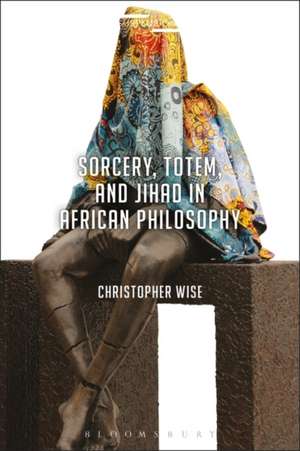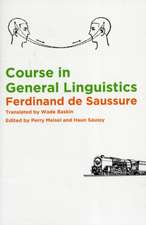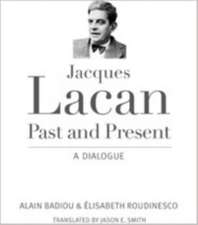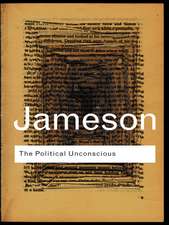Sorcery, Totem, and Jihad in African Philosophy: Suspensions: Contemporary Middle Eastern and Islamicate Thought
Autor Christopher Wiseen Limba Engleză Hardback – 22 mar 2017
Din seria Suspensions: Contemporary Middle Eastern and Islamicate Thought
- 28%
 Preț: 405.76 lei
Preț: 405.76 lei - 22%
 Preț: 237.28 lei
Preț: 237.28 lei - 23%
 Preț: 172.99 lei
Preț: 172.99 lei - 12%
 Preț: 216.16 lei
Preț: 216.16 lei - 22%
 Preț: 256.20 lei
Preț: 256.20 lei - 13%
 Preț: 257.50 lei
Preț: 257.50 lei - 22%
 Preț: 256.85 lei
Preț: 256.85 lei - 23%
 Preț: 171.39 lei
Preț: 171.39 lei - 13%
 Preț: 229.05 lei
Preț: 229.05 lei - 13%
 Preț: 257.50 lei
Preț: 257.50 lei - 13%
 Preț: 238.76 lei
Preț: 238.76 lei - 13%
 Preț: 257.97 lei
Preț: 257.97 lei - 22%
 Preț: 231.81 lei
Preț: 231.81 lei - 22%
 Preț: 224.21 lei
Preț: 224.21 lei - 23%
 Preț: 198.12 lei
Preț: 198.12 lei - 23%
 Preț: 198.68 lei
Preț: 198.68 lei - 24%
 Preț: 188.82 lei
Preț: 188.82 lei
Preț: 567.99 lei
Preț vechi: 815.47 lei
-30% Nou
Puncte Express: 852
Preț estimativ în valută:
108.68€ • 113.78$ • 89.93£
108.68€ • 113.78$ • 89.93£
Carte disponibilă
Livrare economică 15-29 martie
Preluare comenzi: 021 569.72.76
Specificații
ISBN-13: 9781350013117
ISBN-10: 1350013110
Pagini: 216
Dimensiuni: 156 x 234 x 26 mm
Greutate: 0.45 kg
Editura: Bloomsbury Publishing
Colecția Bloomsbury Academic
Seria Suspensions: Contemporary Middle Eastern and Islamicate Thought
Locul publicării:London, United Kingdom
ISBN-10: 1350013110
Pagini: 216
Dimensiuni: 156 x 234 x 26 mm
Greutate: 0.45 kg
Editura: Bloomsbury Publishing
Colecția Bloomsbury Academic
Seria Suspensions: Contemporary Middle Eastern and Islamicate Thought
Locul publicării:London, United Kingdom
Caracteristici
The book provides a complex, well documented, and informed understanding of the recent war in Mali
Notă biografică
Christopher Wise is Professor of English at Western Washington University, USA. His is an expert in Comparative Literature, Critical Theory and African Studies and is author of Derrida, Africa and the Middle East (2009).
Cuprins
Series ForewordIntroduction: Deconstructing Azawad1. The Plundering of Mali, Past and Present2. The African Trace3. The Sahelian Specter4. The Duty of Violence5. Nyama, Fratricide, and Reconciliation6. What Is To Be Done?Epilogue: Zongo, Sankara, and the Burkinabe RevolutionNotesBibliographyIndex
Recenzii
This book is a major contribution to West African studies from a well-known scholar and translator of Sahelian literature. The author demonstrates a thoughtful appreciation of the region's ancient cultural history, which is connected to philosophical themes originating in the ancient Egyptian, Abrahamic, and Hellenic contexts. It is a stelar and welcome contribution to African Studies, particularly the study of West African literature, culture, religion, and philosophy.
I am very impressed with this book's scope and depth. Linking Derrida to Sahelian philosophical traditions is brilliant. I have followed the author's work for many years and the materials presented are extremely exciting. His scholarship is first rate and his devotion to the study of Sahelian philosophy is enviable.
Sorcery, Totem, and Jihad in African Philosophy offers a unique synthesis of Derrida and Sahelian politics, economics, culture, and philosophy that is highly productive and inviting. Wise's book is both timely and the product of his sustained work in this field, and it contains exciting new approaches to Islam in Africa.
In this synthesis of philosophy and anthropology, Wise (Western Washington Univ.) explains how many ancient traditions continue to function in contemporary Africa. He focuses on Mali and the Ansar Dine jihadists, and philosophical ideas range from metaphysical questions about self and universe to questions regarding social and political obligation. The main idea Wise seeks to convey is that in Mali Islam incorporated rather than replaced ancient practices. In chapter 1 Wise presents a history of the plundering of Mali, and in the remaining five chapters he discusses the philosophical underpinnings of the challenge posed by the Ansar Dine jihadists. In examining the jihadist ideology, Wise compares Derrida's deconstructionism with African thought. The struggle, Wise writes, is about freedom, justice, and equality for all Mali citizens under the law. The problem is caste, based on a doctrine of blood-election. Wise reports that this has now reached a point where, in some regions, basic human rights apply only to those who claim to be blood descendants of the Prophet Muhammad. Not an easy read, this book requires a strong background in Continental philosophy and the culture of West Africa. References to philosophers such as Heidegger and Derrida presuppose a familiarity with their work. But Wise very effectively gives priority to African thought. Summing Up: Recommended. Graduate students, researchers, faculty.
I am very impressed with this book's scope and depth. Linking Derrida to Sahelian philosophical traditions is brilliant. I have followed the author's work for many years and the materials presented are extremely exciting. His scholarship is first rate and his devotion to the study of Sahelian philosophy is enviable.
Sorcery, Totem, and Jihad in African Philosophy offers a unique synthesis of Derrida and Sahelian politics, economics, culture, and philosophy that is highly productive and inviting. Wise's book is both timely and the product of his sustained work in this field, and it contains exciting new approaches to Islam in Africa.
In this synthesis of philosophy and anthropology, Wise (Western Washington Univ.) explains how many ancient traditions continue to function in contemporary Africa. He focuses on Mali and the Ansar Dine jihadists, and philosophical ideas range from metaphysical questions about self and universe to questions regarding social and political obligation. The main idea Wise seeks to convey is that in Mali Islam incorporated rather than replaced ancient practices. In chapter 1 Wise presents a history of the plundering of Mali, and in the remaining five chapters he discusses the philosophical underpinnings of the challenge posed by the Ansar Dine jihadists. In examining the jihadist ideology, Wise compares Derrida's deconstructionism with African thought. The struggle, Wise writes, is about freedom, justice, and equality for all Mali citizens under the law. The problem is caste, based on a doctrine of blood-election. Wise reports that this has now reached a point where, in some regions, basic human rights apply only to those who claim to be blood descendants of the Prophet Muhammad. Not an easy read, this book requires a strong background in Continental philosophy and the culture of West Africa. References to philosophers such as Heidegger and Derrida presuppose a familiarity with their work. But Wise very effectively gives priority to African thought. Summing Up: Recommended. Graduate students, researchers, faculty.















